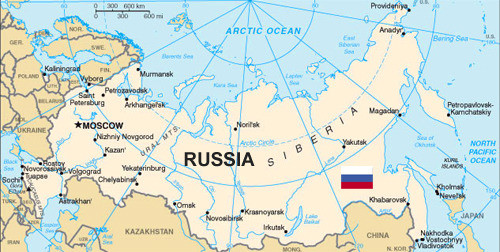Josh Wilson: “RE: 2020-#40-Johnson’s Russia List (re: Fred Weir: ‘No more Kafka: Russian bureaucrats now offer service with a smile.’)”

Subject: RE: 2020-#40-Johnson’s Russia List (re Fred Weir “No more Kafka: Russian bureaucrats now offer service with a smile.”)
Date: Sun, 8 Mar 2020
From: Josh Wilson <jwilson@sras.org>
RE: 1. Christian Science Monitor: Fred Weir, No more Kafka: Russian bureaucrats now offer service with a smile. When an infamously unpleasant bureaucracy is replaced with a friendly, modern version, few are going to complain. But when it happens in an autocracy, it raises a question: Why now?
I ordinarily greatly enjoy reading Mr. Weir’s articles. However, this one takes the all-to-common easy road of assuming that Russia is, at its core, incomprehensible, and, in every move somehow nefarious. Also as is common, in weaving this narrative, the article skips obvious and practical reasons why something is happening.
In this case, the change is largely driven by economic factors and is part of much wider and openly stated policy goals of reducing state spending and boosting worker productivity. If you have a completely centralized state or massive amounts of oil money, you might be able to justify or at least overlook a bloated and slow state service. Russia has neither of these things now, and is thus looking to trim costs. Centralizing services in one building reduces overhead. Making them faster reduces man hours needed. The state is making a substantial investment in the electronic systems and their integration, but theoretically, the investment should result in significant cost reduction and improved efficiency. Further, by pushing a one-stop shop that you won’t have to “take days off work” to finalize, as the story says, this also reduces the economic costs of state service by relieving the pressure it creates on worker productivity. This is something that Russian policy makers have long discussed in terms of how it can be pushed up to developed world averages, particularly in light of Russia’s current demographic situation.
Could improving state surveillance have played a role? Very likely. Could arguments of appeasing the public have also played a role? Also a possibility. However, there are highly pragmatic, quantifiable reasons connected to openly stated policy goals staring us in the face. Overlooking these does a disservice to anyone reading about Russia who wants to actually understand Russia, policy implementation, and how governments function in general.
PS – I’d say that the people at these facilities are actually smiling maybe 30% of the time. These are usually the younger ones. The article spends a shocking amount of time repeating assertions about smiles which seems to only add to the narrative that this can only be an inexplicable facade…. which seems almost Kafkaesque in itself…
Best,
Josh Wilson
Assistant Director
SRAS.org
Editor in Chief
Vestnik, The Journal of Russian and Asian Studies
Study abroad with us!
